
When he led his men and his elephants through the Alps in 218 BC, Hannibal had Rome firmly in his sights. But after several notable victories - most notably the Roman annihilation at Cannae two years later - and despite remaining on the Italian peninsula for the next 15 years, the Carthaginian general failed to conquer the city, suffering from a depletion in manpower and lacking the necessary equipment to breach Rome's city walls.
But what if Hannibal had been successful? How would European culture have been different? And would the Roman empire have still risen to dominate the continent for centuries? Greg Woolf - Ronald J Mellor professor of ancient history at the University of California, Los Angeles, whose books include The Life and Death of Ancient Cities: A Natural History (Oxford University Press, 2020) and Rome: An Empire's Story (Oxford University Press, 2012) doesn't believe the Carthaginian capture of Rome would necessarily have meant the extinction of the Romans.
"The most likely scenario is that the Romans would have been forced into a humiliating peace, maybe had war indemnities imposed on them, and lost their leadership role in Italy. Rome was already a huge city by ancient standards at the time of the Hannibalic War, and it may have struggled to stay so large without its position of power. Most likely, we'd have seen a smaller, weaker city-state, much more like the Italian cities that had been defeated in actuality."
This story is from the {{IssueName}} edition of {{MagazineName}}.
Start your 7-day Magzter GOLD free trial to access thousands of curated premium stories, and 9,000+ magazines and newspapers.
Already a subscriber ? Sign In
This story is from the {{IssueName}} edition of {{MagazineName}}.
Start your 7-day Magzter GOLD free trial to access thousands of curated premium stories, and 9,000+ magazines and newspapers.
Already a subscriber? Sign In
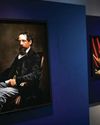
'Dickens's evocation of the fears, excitement and confusion of childhood is peerless'
DR LEE JACKSON ON WHY CHARLES DICKENS REMAINS RELEVANT TODAY
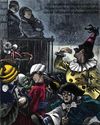
THE AUTHOR GOES ABROAD
Dickens expanded his horizons and boosted his fan-base by venturing overseas - but global fame came with a cost
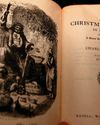
REVIVING THE FESTIVE SPIRIT
A Christmas Carol wasn't just a bestseller - it changed the way that Britons chose to mark the festive season
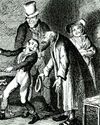
GIVING THE POOR A VOICE
From Hard Times to Oliver Twist, Charles Dickens used his pen to help illuminate the lives of the less fortunate
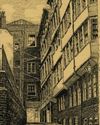
A JOURNEY THROUGH DICKENS'S LONDON
The works of Charles Dickens are synonymous with visions of Victorian London. We talk to Dr Lee Jackson about the author's love of the capital, and the locations that most inspired him
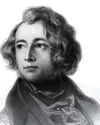
EXCEEDING EXPECTATIONS
Dr Lee Jackson chronicles Charles Dickens's journey from down-at-luck teenager to titan of Victorian literature

GIFTS, TREES & FEASTING
We take a journey through the photo archives to reveal how Christmas and its many traditions have been celebrated over the years - and around the world
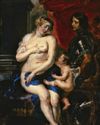
WHAT GREAT PAINTINGS SAY
We explore the story behind an allegorical painting that celebrates the triumph of love over hate, peace over war
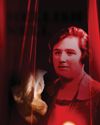
HELLISH NELL
Malcolm Gaskill delves into the life of Helen Duncan - the fraudulent Scottish medium whose ectoplasm-filled seances saw her ending up on the wrong side of the law

7 THINGS YOU (PROBABLY) DIDN'T KNOW ABOUT THE WHITE HOUSE
Presidential historian Dr Lindsay M Chervinsky reveals some of the most surprising facts about the world-famous US residence